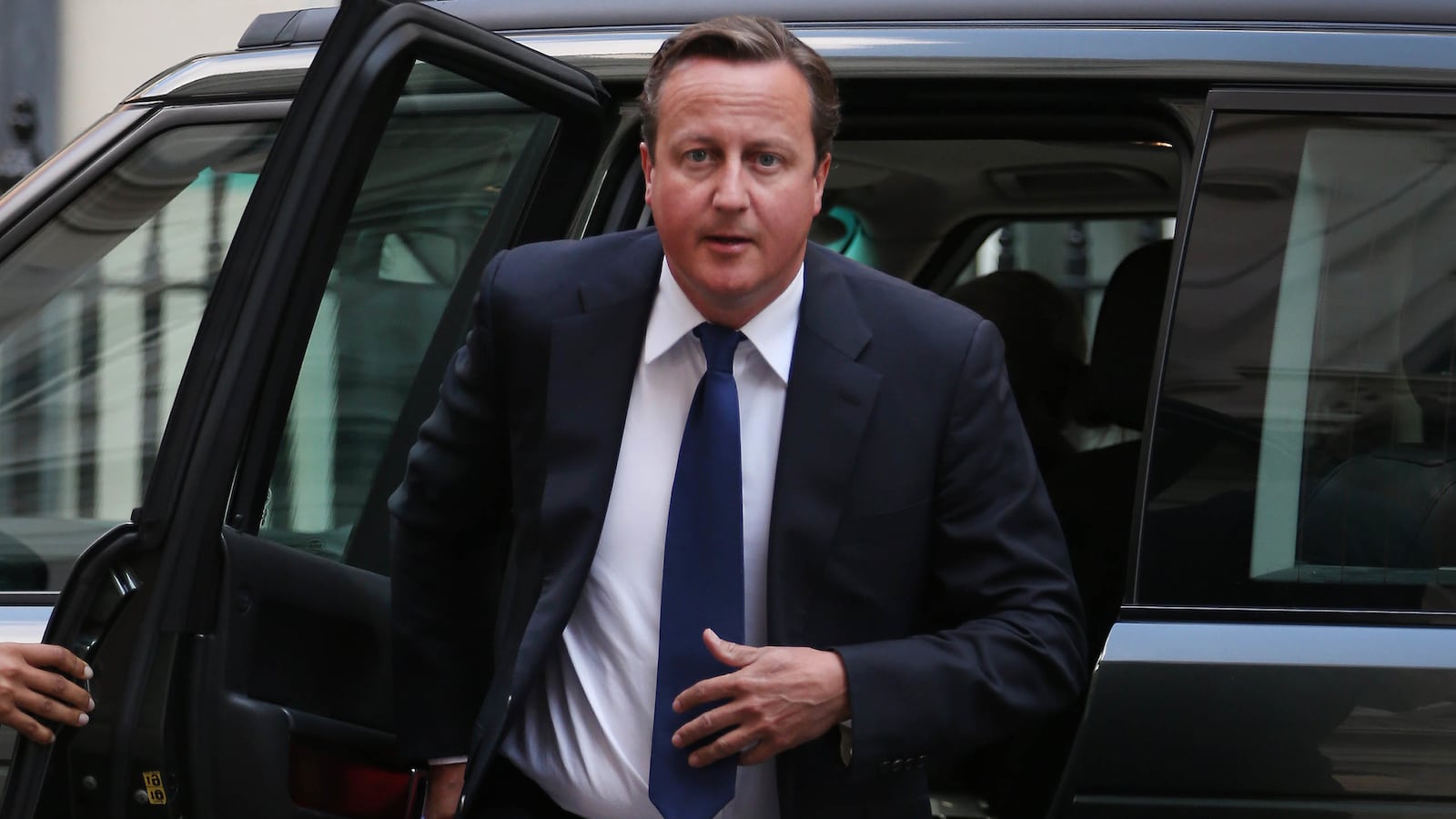Britain will almost certainly reject a second chance to join the U.S. on a possible military strike against Syria—even though none of the country’s political parties ever planned to rule out British cooperation.

A bizarre political paralysis has gripped London since Prime Minister David Cameron suffered a surprise defeat in a vote that nobody thought he could lose. Former statesmen and retired politicians from the main parties have lined up to urge the current leaders to rectify their isolation from Washington and Paris, but neither side sees a way to navigate out of the self-imposed stalemate.
President Obama’s decision to delay action and ask for approval on Capitol Hill has given Britain another opportunity to act alongside the United States, but the British government has ruled that out unless there is a “very significant” change in circumstances in Syria.
“Cameron ran out in front of Obama—he was desperate to lead the charge—and he tripped over,” a member of the parliamentary Defence Select Committee told me. “He was so surprised by losing the vote that he overreacted and left himself no wiggle room.”
In a flash of anger, after failing to pass the motion in the House of Commons, Cameron said it was clear that the British people and Parliament wanted no part in military intervention. In fact, most of the MPs who voted “no,” an alliance of Labour opponents and rebels within his own party, simply wanted more information and more time to decide.
In the aftermath of the vote, British leaders were soon professing their anguish at damaging the country’s reputation abroad. Briefings from the White House that Britain had “bungled” their role in dealing with Syria were felt acutely in London; it hurt when John Kerry described France as the “oldest ally” of the United States and British military figures were said to be chastened when they were suddenly excluded from strategy meetings at Central Command in Tampa, Florida.
Tony Blair, the former Labour prime minister, said the outcome was “shocking” while Sir Malcolm Rifkind, a former Conservative foreign secretary, was among those who urged Parliament to overturn the decision.
A senior foreign policy official told me that there was clearly a majority in the House of Commons to support limited military action, although he did not expect another vote on the issue for months.
Having been humbled once, Cameron decided not to risk a re-run in Parliament. He has already become the first prime minister to lose a vote on a question of war since 1782, and if he lost again he would be forced to consider resignation. He said on Tuesday: “I’m not planning to return to Parliament to ask again about British military action.”
Cameron’s choice to put the intervention to a vote of MPs, which he was not required to do by law, has been praised by critics of military strikes all over the world. In the eyes of some members of his own party who rejected calls for military intervention, however, he was given little choice. “There has been a certain amount of hogwash talked about how noble it was; it’s not true. Cameron had no choice but to recall Parliament,” Julian Lewis, an MP in Cameron’s Conservative Party, told The Daily Beast.
The British prime minister had been one the most outspoken proponents of taking action against Syria’s President Bashar al-Assad but he failed to successfully emulate Blair, who was able to convince a skeptical Parliament to approve war in Iraq in 2003.
None of the current party leaders in Britain posses the force of will or powers of persuasion last seen under Blair. Both Blair and his former foreign secretary, David Miliband, have called on Western nations to do more to intervene in Syria. “Chemical weapons are used against innocent civilians, including children, and our response is apparently: best do nothing,” Blair wrote in the Sunday Times.
Miliband, his former protégé, agreed, arguing that military action was “increasingly necessary” despite the fact it is “decreasing in popularity.”
David Miliband, who works for the International Rescue refugee organization in New York, lost to his younger brother, Ed, in the most recent Labour party leadership contest. Ed Miliband had initially told Cameron last week that he would support the call for military intervention but, according to Labour sources, he changed his mind when he realized that he may not be able to convince the majority of his party to follow him.
“If it was Blair he would have just used his hegemony over the party. Miliband doesn’t have that,” Dai Havard, the Labour chairman of the All Party Parliamentary Group for the Army, told The Daily Beast.
Instead, Miliband asked his MPs to reject Cameron’s specific proposal on Syria but he did not suggest all military action should be ruled out. “That’s the ironic thing. He never said never,” said Havard. Both leaders are now stuck with a solution on Syria that neither of them ever wanted.






